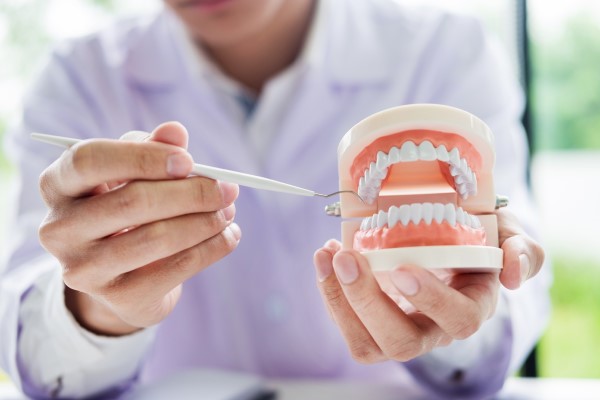Ways a General Dentist Can Help You Fight Gum Disease

Gum disease, also known as periodontal disease, affects many individuals. A large percentage of people over the age of 30 have some form of periodontal disease. Many general dentists diagnose and treat gum disease. But they can also help you avoid it in the first place. Keep reading to find out how your dentist can help you fight gum disease.
Gum disease
Gum disease usually starts with bacterial growth in the mouth. If left untreated, gums and bone can become damaged to the extent that teeth can fall out or may have to be removed and replaced. But a person can take steps to prevent gum disease and sometimes even reverse it. These include having regular dental checkups, brushing the teeth properly, and flossing daily.
Professional dental cleanings
Seeing the dentist often will help to keep the mouth clean and healthy. Routine exams and professional cleanings can prevent many oral health problems, including gum disease. They are also essential for detecting gum disease early. Plaque constantly forms on people’s teeth. When individuals do not clean their teeth thoroughly, it allows plaque to harden into tartar. The buildup of plaque and tartar on teeth can lead to many problems, such as gum disease and tooth decay.
If a person does not seek treatment, gingivitis can progress into a more serious type of gum disease, often referred to as periodontitis. It usually occurs when plaque and tartar spread below the gumline. Professional cleanings help to remove tartar from teeth. A professional cleaning can also help to reverse gingivitis.
It can involve scaling, which is when the dentist removes all the hardened tartar or plaque. The provider will then start root planing, which involves smoothing out the teeth roots. This promotes healing after the removal of the plaque and tartar. Tartar can build up in areas that are hard to reach, and it is hard to remove it. It is vital to visit the dental office twice a year or as recommended to keep tartar under control.
Brushing and flossing
Brushing the teeth is essential to a healthy mouth, teeth, and gums. It is advisable to use a soft-bristled toothbrush. It should be small enough to get into the hard-to-reach places. Dental floss removes food and plaque between the teeth and under the gums. When it comes to preventing gingivitis, flossing and brushing are very beneficial. The dentist may recommend oral healthcare products that can help to keep the mouth as healthy as possible.
Caring for your mouth
Gum disease can lead to tooth loss and cause many other problems. But many individuals can prevent gum disease by taking good care of their teeth. Brushing teeth twice every day and flossing daily usually prevent tartar and plaque from forming. But tartar is often hard to get rid of, and in some cases, it requires a visit to the dental office for a professional cleaning. Regular visits also allow dentists to detect the early signs of gum disease. To learn more about how to prevent gum disease, talk to your dentist today.
Request an appointment here: https://www.palmbeachdentistry.com or call Palm Beach Dentistry at (561) 225-2057 for an appointment in our Delray Beach office.
Check out what others are saying about our dental services on Yelp: Gum Disease in Delray Beach, FL.
Recent Posts
Gum disease is one of the most common oral health issues dentists encounter in patients of all ages. It can range from mild gum irritation to severe conditions that affect the tissues and bones supporting your teeth. The root cause of gum disease is typically the accumulation of plaque on the teeth and gums. Understanding…
Gums deterioration exposes the tissue that protects the teeth's roots. Receding gums may also occur around an improperly placed tooth. When the origins of the teeth become exposed due to receding gums, the teeth are more susceptible to decay, infection, and loss. People may halt or reverse the progression of gum recession if they seek…
Receding gums occur as a result of periodontitis (gum disease). Early intervention for gum disease can minimize the invasiveness of treatment, and many patients are able to restore the health of their gums and teeth through improvements in their oral care routine, non-invasive dental treatments, and at-home remedies.At-home remedies do not reverse receding gums, but…
Concerned about receding gums? Read on to learn more about this condition and how it presents itself. You may be able to notice receding gums by simply examining the appearance of your gums at home. If you notice your gums are pulling away (receding) from gums, then you are most likely experiencing gum recession. However,…


